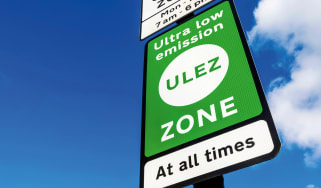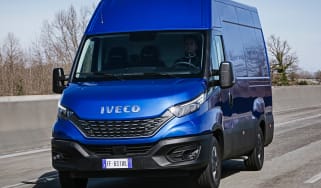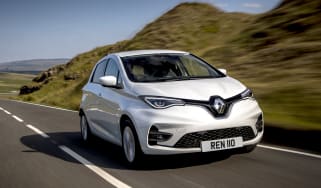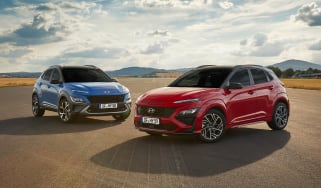Double-cab pick-up truck tax benefits explained
HMRC’s VAT and Benefit-in-Kind tax rules for double cab pick-ups make them seriously attractive as company vehicles

The latest batch of double-cab 4x4 pick-ups is larger and tougher than it has has ever been before, making them ideal workhorses for tradesmen and those professionals who genuinely need off-road capability. But the latest batch of double-cabs aren’t simply more practical than their pickup predecessors. Nowadays manufacturers are loading high-spec versions of their commercial pick-up trucks with glamorous styling accessories and the type of luxury options you’d expect to find in an executive car.
Look at the brochures and websites for 4x4 pick-ups like the Ford Ranger, Isuzu D-Max, Mitsubishi L200, Nissan Navara, Toyota Hilux and VW Amarok and you’ll see what we mean. In fact there’s a real buzz around the 4x4 pick-up market at the moment, with new contenders from Fiat, Mercedes and Renault all lining up in the wings.
• Best pick-up trucks to buy now
The reason? Increasing numbers of company drivers are cottoning-on to the tax advantages of running a cool-looking double-cab pick-up instead of a traditional family car or SUV. So naturally manufacturers who make juicy margins on ‘luxury’ versions of cheap to develop commercial vehicles are doing everything possible to fan the flames of desire.

Unfortunately there’s no such thing as a free lunch, and even the best driving 4x4 pick-up will feel unwieldy and unrefined to many drivers thinking of switching from a regular road car. For shrewd drivers prepared to take the rough with the smooth though, here’s what you need to know about the tax rules and regulations for double-cab pick-ups.
First, pick your pick-up…
To take advantage of the HMRC tax rules for double-cab pick-ups, you need to choose a pick-up with a payload of at least one tonne. That’s the benchmark figure the HMRC has decreed any double-cab must meet in order to be classified as a Light Commercial Vehicle.
If you pick a pickup with a removable hardtop cover, make sure the weight of the top doesn’t take your chosen truck’s cargo capacity beneath the magic 1,000kgs, or the vehicle will be taxed as a regular company car. Two seat pick-ups, and other trucks and vans are classified as LCVs automatically, as they’re not thought to offer the same ‘non-business’ benefits to their drivers.
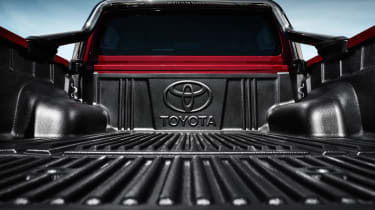
Fortunately, all the big 4x4 pickups from the major manufacturers are designed to pass the HMRC payload threshold - even with a hardtop. It’s one of the reasons the pickup class seems to have grown so much in recent years.
Tax benefits for employees and employers
Driving or supplying a pick-up truck (as long as it’s one that's classified as an LCV – see above) brings tax benefits to both employees and employers. That’s because as well as extremely favourable Benefit-in-Kind rates for drivers, (VAT-registered) purchasers can reclaim substantial amounts of VAT, while companies can often write off the full purchase cost against tax.
Company car tax benefit
The biggest benefit for most pick-up drivers – assuming you’re an employee and not a company director – will come in the form of reduced Benefit-in-Kind rates covering personal use of your company vehicle outside work.
Company car BIK taxation rates are charged as a percentage of the vehicle’s purchase price, but that percentage is linked to CO2 emissions and it rises steeply with more polluting engines. So if you drove a car emitting 169g/km of C02 – like the latest Nissan Navara 2.3dCi Tekna pickup – you’d face a whacking annual BIK tax liability of 33 per cent of its (almost) £32k purchase price.
However there’s no sliding scale for double-cab 4x4 pick-ups thanks to a fixed BIK rate, and for 2016/17 it’s set at just £3,170.
That means a 20 per cent taxpayer would hand over £634 to HMRC for the privilege of using their company pickup as personal transport, while a 40 per cent taxpayer will have to cough up £1,268.
Compare those figures with the company car tax examples in the table below. As you can see, the biggest cash benefits are to higher 40 per cent tax bracket earners swapping out of higher value company vehicles:
| Vehicle make/model | Purchase price | C02 rating | BIK % rate | BIK figure | Annual tax for 20% taxpayer | Annual tax for 40% taxpayer |
| Nissan Navara 2.3dCi Tekna Double-Cab | £31,845 | 183 | Fixed rate
| £3,170 | £634 | £1,268 |
| Audi A6 Avant 2.0 TDI Ultra SE | £35,040 | 118 | 23% | £8,059
| £1,612 | £3,224 |
| Land Rover Discovery Sport 2.0 TD4 SE | £31,040 | 129 | 25% | £7,760 | £1,552 | £3,104 |
| Ford Mondeo Estate 2.0 TDCi Titanium | £26,190 | 117 | 25% | £6,024 | £1,205 | £2,409 |
VAT and Capital Allowance benefits
All Light Commercial Vehicles – including double-cab pickups – qualify for VAT reclaims, as long as the business that purchases the vehicles is VAT registered, of course. The amount of VAT that’s reclaimable depends on how much of the vehicle’s mileage is driven for business. If it’s 80 per cent business mileage, then 80 per cent of the VAT can be reclaimed from the taxman.
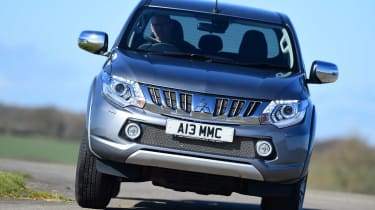
This is very different to the position with company cars, as they are only eligible for VAT reclaims if they’re used 100 per cent for business. (Unless they’re bought for use as a taxi, driving school, private hire, or other limited exceptions.) Driving to work from home is not considered as business use by HMRC – a driver who commutes would lose a business all the VAT on a company car, but would lose only a percentage of the VAT on a pickup.
• Best company cars to buy now
Pickups that are purchased by a business are also eligible for writing-off against Capital Allowances much quicker than company cars. LCVs qualify as ‘plant and machinery’, so the purchase cost can usually be written off in the first year, whereas as the write-off rate for company cars could be as low as 8 per cent per year.
Check the details with your accountant
As with all aspects of taxation, it is the responsibility of individuals and businesses to understand the rules and regulations and act accordingly. As personal and business circumstances can vary so widely, it’s vital that anyone considering swapping their company car for a pick-up should take professional accounting advice. The overview we’ve provided is for general guidance only.
Now, for a full run down of the tax rules regarding vans, click here...
